Why I Love Setters of Catan (and Why Anti-Whites Hate It)
Why Catan is a worldwide hit and why that has made anti-whites angry.
Settlers of Catan is one of the most popular boardgames in the world. A creation of the late Klaus Teuber, Die Siedler von Catan was first released in Germany in 1995, winning the prestigious Spiel des Jahres award as the best boardgame of that year. Over the past 29 years, the game has sold over 40 million copies worldwide. In 2015, Settlers of Catan was renamed to simply Catan and there now exist multiple expansion sets, numerous spin-off games, and even a biannual Catan World Championship tournament.
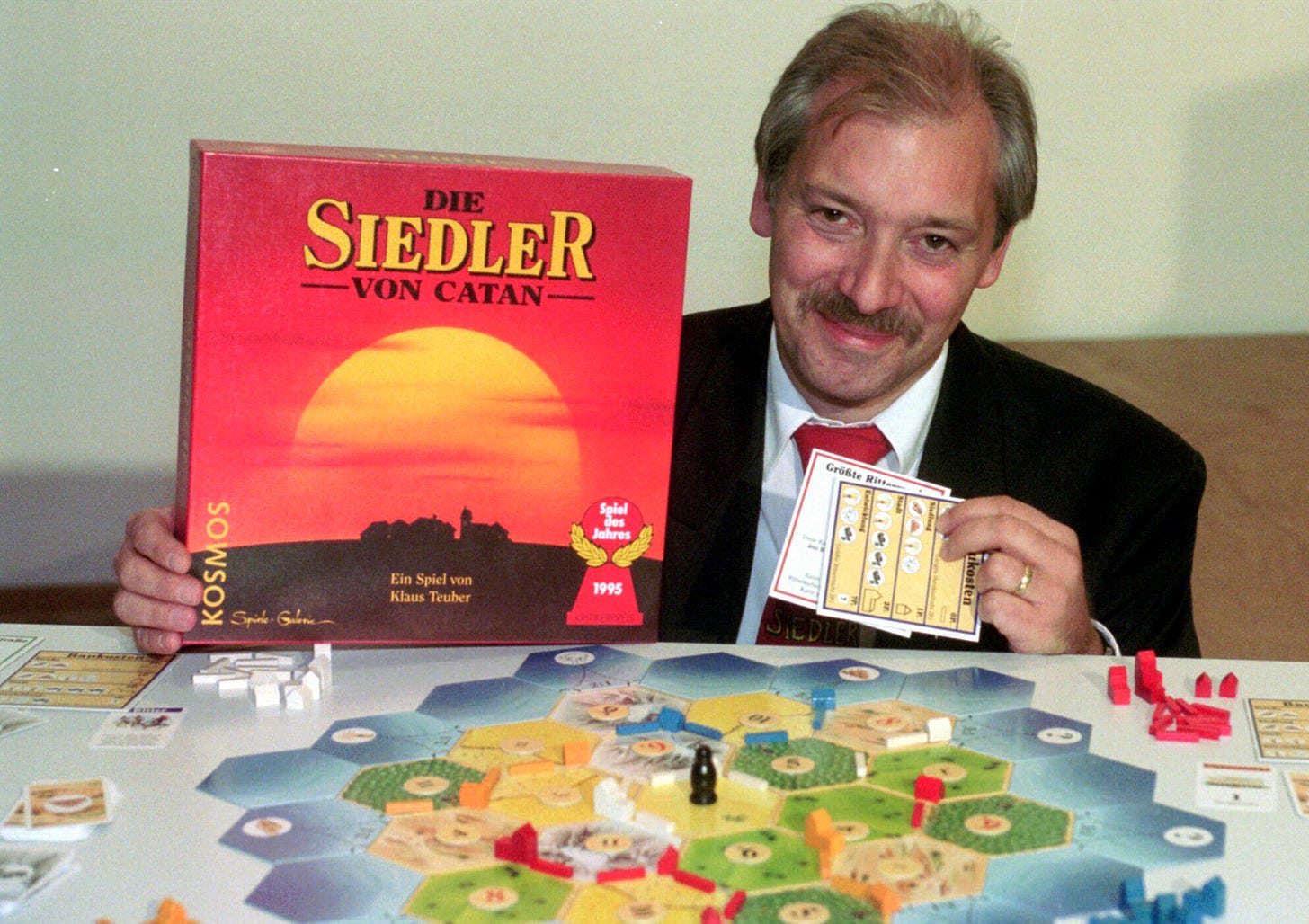
The game takes place on a fictional island known as Catan. Players can build settlements, collect resources, trade, and expand with the goal of building the greatest colony on the island. Expansion sets have added seafaring, military ventures, and more to the mix. Catan is the perfect strategy game. The gameplay is quite simple yet allows for the use of a wide variety of strategies to obtain victory. Strategies can include monopolizing specific resources, sabotaging opponents’ efforts to expand, obtaining special event cards, and more. Games can last from 30 minutes to several hours depending on the number of players and the incorporation of expansion packs.
What better way to spend a rainy weekend afternoon with friends or a family game night than with Catan? In today’s world of technologically induced atomization, I was pleasantly surprised to read that the board game industry is thriving. In the age of video games and streaming services, where the standard form of entertainment has become staring at a rectangular piece of glass for three hours, it’s great to know that good old-fashioned cardboard is still bringing folks together in meat space. Today, one of the favourites is Catan.

It's not only the captivating gameplay which makes Catan special, but something much deeper. Klaus Teuber was born in a small village in West Germany, overlooked by Breuberg Castle, one of Germany’s best-preserved castles from the Middle Ages. As a boy, he was a fan of fantasy novels, history, geography, and table-top boardgames. He carried these passions into adulthood, taking up boardgame design as a hobby which would later become his full-time job following the smashing success of Settlers of Catan.
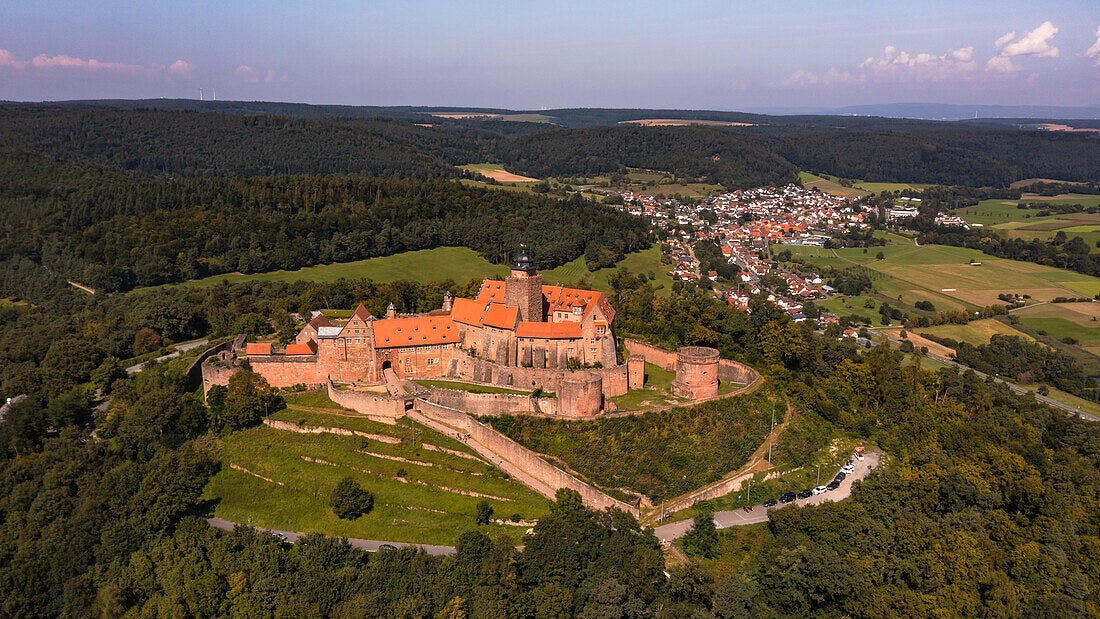
Teuber’s inspiration for Catan was the Viking Settlement of Iceland in the 9th century AD. As a history buff, he had a particular fascination with the Vikings and designed the game as a way of playing out their adventures at sea which he had read of in his youth. Catan has an aesthetic style inspired by medieval Europe. The game’s visuals include bearded men with broadswords, axes, and scythes alongside beautiful maidens with long dresses and flowing hair, all of whom are very Nordic in appearance. These folks are seen inhabiting small villages with thatched-roof houses surrounded by deep-green forests, golden fields of wheat, or towering slate-coloured mountains. When I introduced my girlfriend to Catan last year, she not only found the gameplay enjoyable, but was also impressed by the game’s beautiful artistic style.
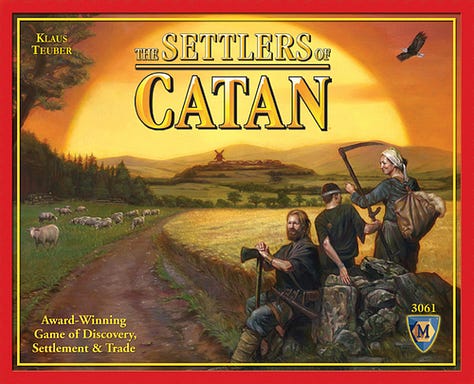
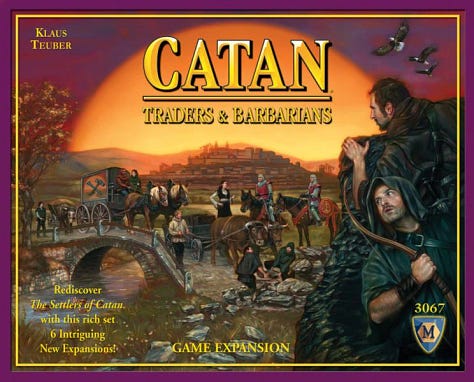


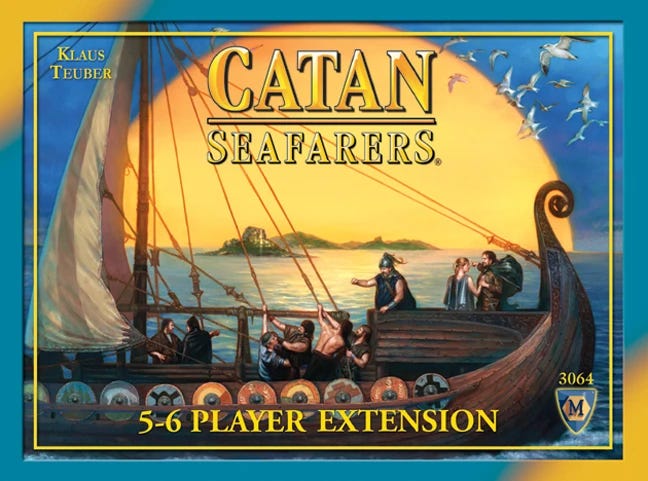
However, it’s not only the game’s aesthetics which are steeped in themes from European history. The concept of Catan, a game about a small group of settlers putting down roots on fertile virgin soil and going on to build an empire, speaks to a burning desire deep within the European soul. Oswald Spengler referred to this as the Faustian Spirit, Western Man’s drive into infinite space. It was this drive which took Western Man across oceans, to the tops of mountains, to the bottom of seas, and way up into the stars. This is the spirit which brought our civilization to the vast expanses of the North America, to dry Outback of Australia, and yes, the small island of Iceland to the northwest of Europe.
There’s just something deeply satisfying about seeing your little figurines on a hexagonal board expanding out and reaching new colourful six-sided tiles, multiplying, then evolving into bigger figurines. Perhaps, in a minute way, it’s akin to the feeling an Englishman in Victorian Britain must have had seeing another small piece of the enormous world map on the wall painted red. It’s the feeling that you’ve taken another step into the infinite space which the Faustian soul longs to conquer.
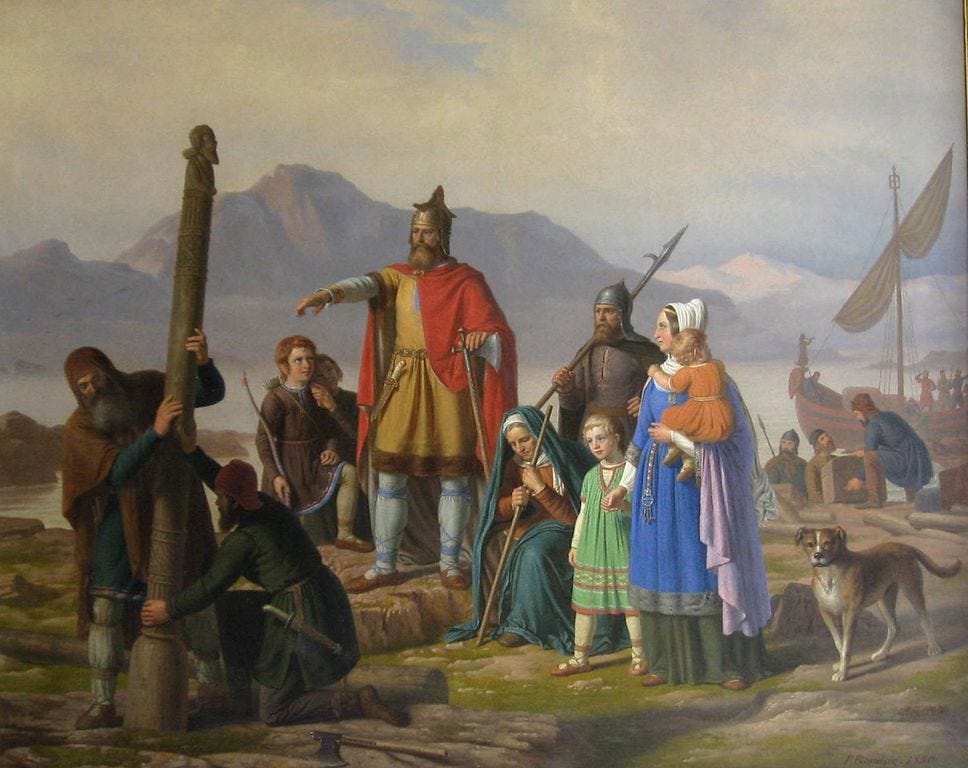
I have no idea what Klaus Teuber’s political views were. It doesn’t matter. Catan is not an assertion of a superficial political ideology, but a more profound expression of European identity. The game does have a universal appeal. It’s available around the world in over 40 languages, including many lesser-known European languages such as Estonian, Bulgarian, and (fittingly) Icelandic, but also non-European languages such as Chinese, Japanese, and Arabic. Non-Europeans can enjoy the game too, but Catan is fundamentally a creation of the European mind, much like how a European can appreciate the virtues of a samurai warrior, but he could never embody them. Only the Japanese can.
In a sane era, Catan wouldn’t be considered political in the least. Alas, we do not live in such a time. Professional anti-white activist Biz Nijdam of the University of British Columbia recently published an article on how Catan allegedly promotes the supposed evils of “settler colonialism” and how the boardgame industry needs to “decolonize gameplay” by incorporating contributions from “indigenous voices”. This isn’t the only anti-white attack on the beloved worldwide hit boardgame. Heather Tirado Gilligan wrote an article in 2020 on how boardgames “perpetuate racism”, saying how her family won’t be playing Catan, a game which “re-enacts settler colonialism”. Anti-white author Lorenzo Veracini similarily penned a review of Catan, lambasting the game on the same grounds. To take matters even further, Professor Greg Loring-Albright of the anti-white Dismantling the Doctrine of Discovery Coalition went so far as to design a modification5 of the game intended to shoehorn in the experience of white guilt.
Now, this might seem like nothing out of the ordinary for the day and age we live in. How many books, films, songs, and historical figures have already been cancelled on the grounds that they offend the sensibilities of “indigenous people”? This attack on Catan might appear to be just run-of-the-mill hostility from anti-white academics, but here’s the kicker. There are no indigenous people of Catan. Nowhere in the game is there any mention of inhabitants living on the island prior to the arrival of the settlers.
In fact, Klaus Teuber even stated in a 2012 documentary that he when conceptualizing the game, he imagined explorers discovering a totally uninhabited island, as was the case when the Vikings arrived in Iceland in 874 AD. The Māori, who arrived in New Zealand in the 13th century, are universally recognized as the country’s indigenous people. If we were to apply that standard consistently, the Icelandic, who arrived in their homeland about 400 years earlier are most certainly the indigenous people of Iceland. Thus, the settlers in this boardgame based on their history should be considered the indigenous people of Catan. Not to mention, the extent of violence in the original game, without the addition of any expansion sets, is knight scaring away (not even killing) bandits who are stealing their settlement’s resources. The Island of Catan is about as peaceful as 98% white Iceland is today.

What crime are these fictional settlers of this imaginary hexagonal island supposedly guilty of? Even if we were to take the overly simplistic, one-sided, anti-white version of history which we are fed today at face value, who would the alleged victims of the colonization of Catan even be? On the surface, it doesn’t make much sense, but a deeper understanding of anti-whites (some of whom are white themselves, some of whom are not) reveals what is really behind their seemingly bizarre hatred of the blockbuster success that is Catan.
When they say “racism” or “white supremacy”, anti-whites are not referring to the phenomenon of arbitrary racial hatred. They themselves are throbbing with racial hatred directed against white people and they don’t seem too bothered about the distain different non-white groups often hold for each other. It’s not even about imperialism or the domination of one race over another. Again, they don’t seem to think the Turks, Arabs, Chinese, or Zulus should share the same self-flagellating guilt over their peoples’ histories of conquest which they prescribe for Europeans.
Simply put, “anti-racism” is the hatred of people of European descent. But it’s not simply the hatred of Europeans as people, but the entire world we’ve created. My friend Morgoth has stated on several occasions that, when anti-whites say “whiteness”, what they are referring to is not just white people, but the Faustian Spirit itself, Western Man’s entire way of being. This is why you’ll see articles these days about how classic music and even mathematics are “racist”. These might not appear to have anything to do with race, but they are creations of Western culture which has dominated the world for centuries. These are products of white sensibilities which often make many members of other races around the world feel uncomfortable.

Of course, none of these anti-white intellectuals would ever be able to articulate this. They are mid-witted mediocrities at best and bumbling retards at worst. Rather, they can spot the slightest hint of the Faustian Spirit or “whiteness” as they call it instinctually, and like a spider who pounces at the slightest sense of vibration in its web, they attack the second they do. Iceland is regarded as one of the safest, wealthiest, and happiest countries in the world. Yet I have no doubt that there’s an NGO somewhere out there fast at work crafting a narrative about how Iceland is a “nation of immigrants” with a “dark history of racism” designed to smash this almost-perfect nation to pieces. The powers that be in the world today can’t allow such a place to exist.
It's for this same reason a number that of anti-white academics can take one look at the groundbreaking success of a seemingly harmless tabletop boardgame inspired by the history of Viking exploration and scream bloody murder. Building settlements, collecting resources, trading, upgrading, and expanding outwards with the goal of building the mightiest colony on a mythical island is a miniature simulation of the spirit which the greatest evil of our time wishes so desperately to extinguish.
How many beloved classics of European literature have we seen butchered by politically charged anti-white screen adaptations in this decade alone? It’s been done to J.R.R Tolkien’s Lord of the Rings, the Brothers Grimm’s Snow White, and Hans Christian Andersen’s The Little Mermaid, just to name a few. But none of these disgraceful attempts at passing off political indoctrination as entertainment have inspired viewers the same way the original versions or earlier adaptations of these cherished tales have. Even non-Western audiences, who these atrocities of films are allegedly gear towards, aren’t impressed. Everyone, whether Western or not, can feel that the original stories were creations of an authentic culture and that these remakes are just malicious bastardizations of that.
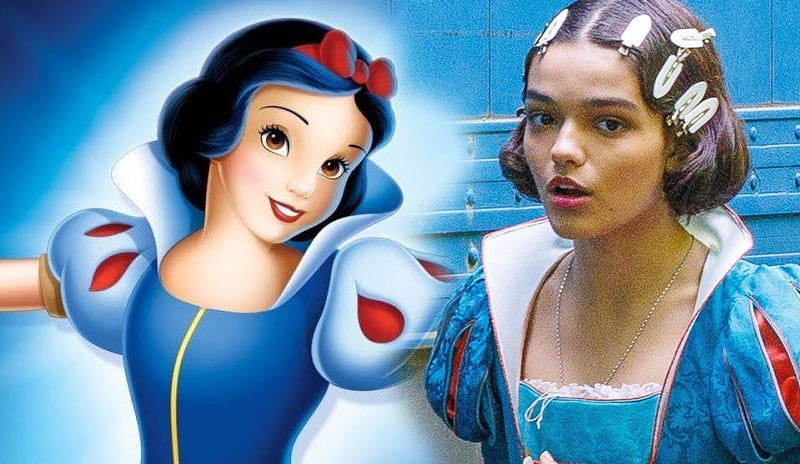
In our era of cultural stagnation, when people are reverting to consuming older forms of entertainment as an escape from the toxicity of the contemporary mainstream, Catan continues to reach new heights of popularity. When asked why he thought Catan was such a success, Klaus Teuber guessed it was because the game was the perfect balance between strategy and luck. It’s certainly true that this is why the gameplay works perfectly, but is that real reason everyone loves Catan? Teuber didn’t set out with the dream of creating the perfect strategy game through the finest tuning of mathematical equations. His dream was to see the adventures of the seafaring Vikings of old “going carboard”.
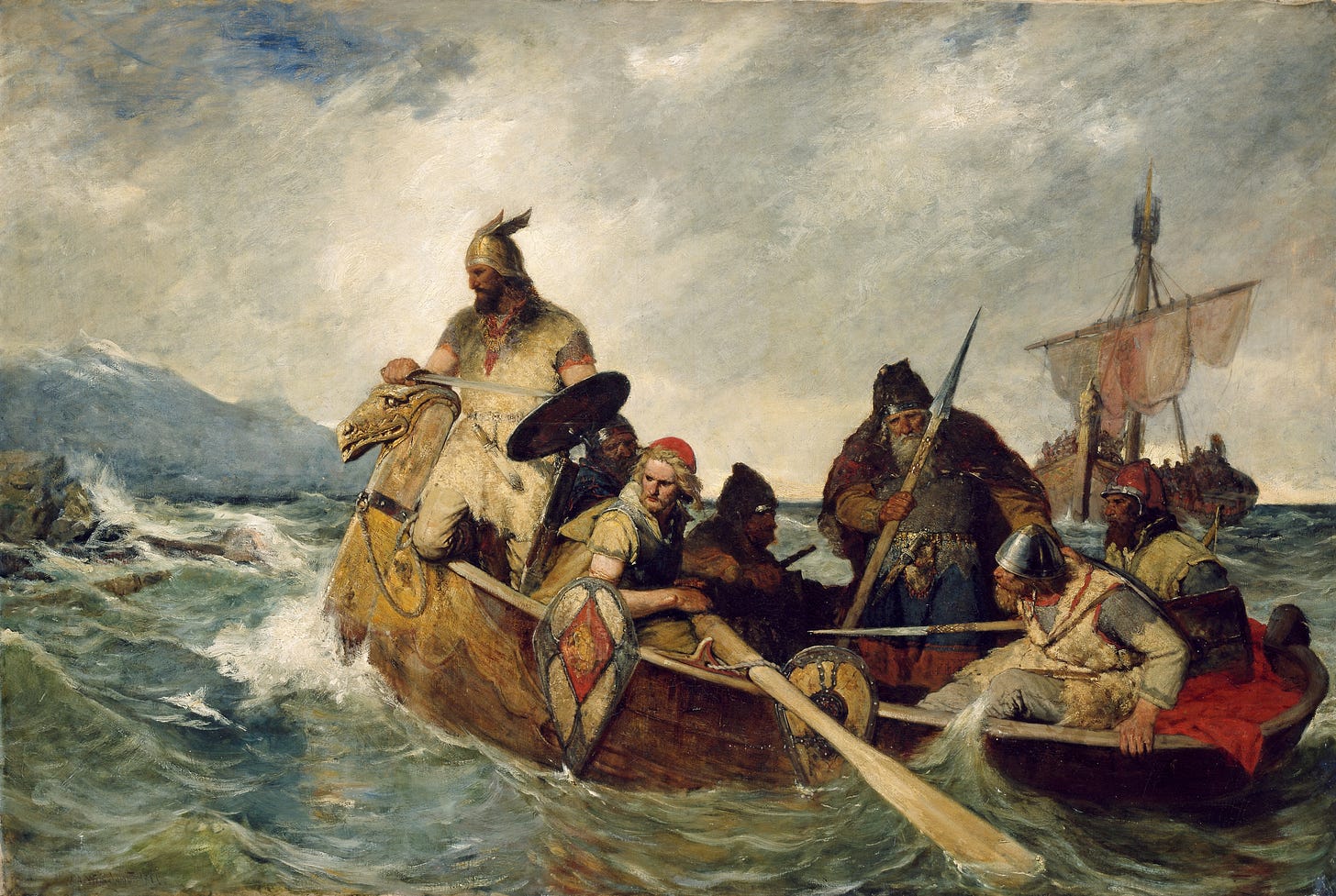
Catan is not just a strategy game. It’s an authentic expression of European culture and heritage still unmarred by the sludge of hostile political propaganda. Unfortunately, this hasn’t gone unnoticed by those with a searing hatred for our civilization and its culture. As Catan popularity continues to rise, so will the number of voices wishing to “decolonize” the game by including the “lived experiences” of “indigenous peoples”, like an upchuck of puke being spewing across the game’s decorative cardboard hexagons.
We can only hope that Catan remains available with its original gameplay and enchanting medieval-inspired aesthetics and that it’s not “diversified” so as to look as if it had been created of an AI art generator run by Google. But know well that there exist those who would like nothing more than to see it defiled as has already been done to Lord of the Rings. Thankfully, however, if you get a copy now, family game night with Catan will continue feel like an exhilarating Viking adventure and not a sadistic political re-education session.






I've never heard about this boardgame before and while I myself am not a boardgames guy, I might order it soon so my future children will have something authentically European to enjoy, before this medium eventually becomes diversified.
What impressed me in this story though, is that how anti-Whites would literally prefer non-white peoples to suffer, if this suffering can be used to smear Europeans and instill the feeling of guilt and self-hatred in us. This boardgame was inspired by the Viking settlement of Iceland, and as Endeavour has correctly pointed out, no human population existed on that island prior to the Vikings.
However, I am willing to bet any amount of money in my possession that those anti-White busybodies mentioned in the essay are brimming with bile at the fact that this settlement was peaceful. They would be radiating with joy if it would turn out that there existed an indiginous non-European tribe of Icelanders that suffered under the cruel heel of "ze eevil White colonizer".
So far, the bastardization of LoTR has been met with fierce condemnation and ridicule. May it continue, and every attempt to corrupt it, be rejected so fully.